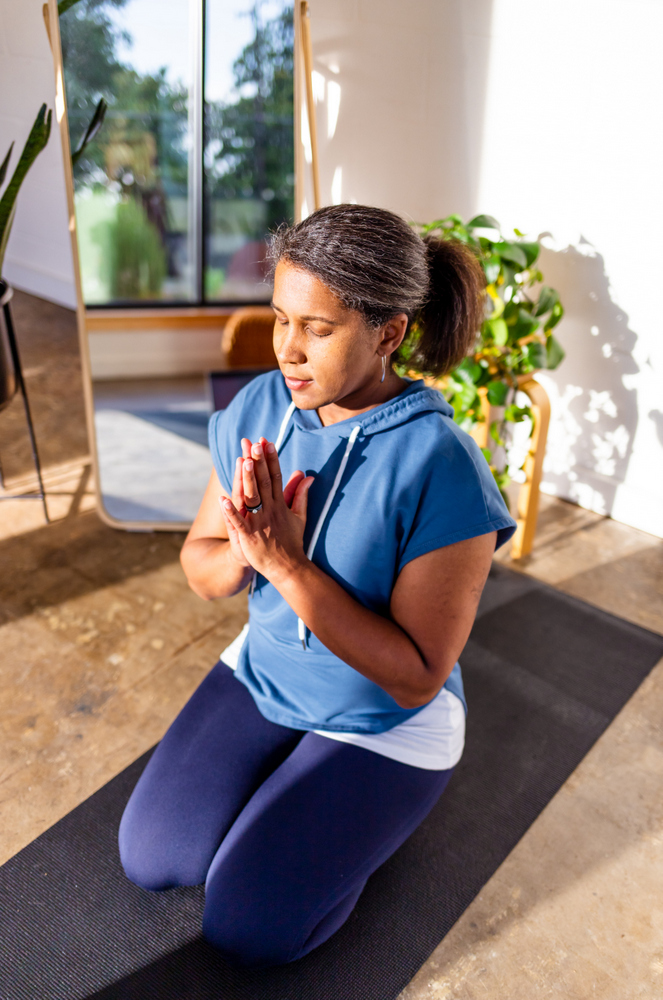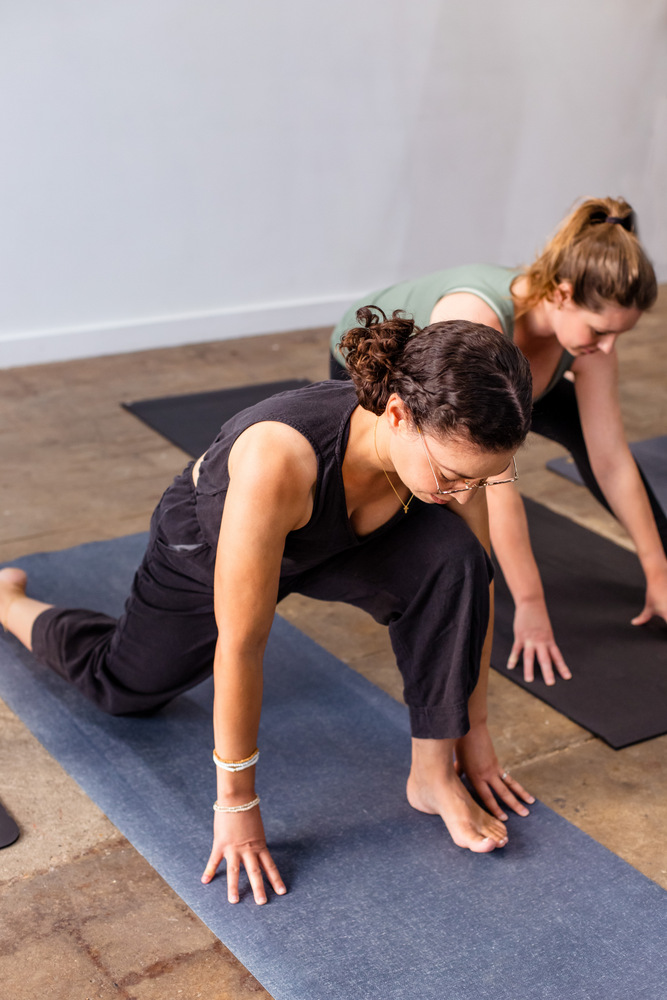What is Yoga
Yoga is a Sanskrit word that means to unite or yoke together. It speaks to the communing of things that have separated, such as body, mind, and soul; the human and the divine.
Yoga – its meaning, expression, purpose, and popularity – has changed radically over thousands of years. Our understanding of what yoga is today looks drastically different than what many of the ancient writers were discussing when they wrote about yoga. Some scholars argue that yoga, as we know it today, can’t even be considered a descendant of the yoga of yore.
The earliest writings about yoga come from the Indian subcontinent thousands of years ago and pre-date organized religions like Hinduism, Buddhism, and Jainism. These religions and the cultures that surrounded them were, and are, heavily influenced by these writings (called the Vedas). It’s not entirely true to say that Yoga is Hindu or Yoga is Buddhist, but, it is fair to say that the ancient yoga philosophies are widely incorporated in these religions and cultures today.
The discipline of yoga was codified by Patanjali sometime around the 2nd century BC in the Yoga Sutras. In the Sutras, Patanjali outlines an eight-limbed practice with the physical shapes we call yoga today being just the third limb of this yogic path. The following five limbs speak to breathwork (pranayama) and increasing levels of meditation.
Many of the asanas (physical shapes) we practice today in yoga didn’t really develop until the 1800s and were largely influenced by cross-cultural approaches to body movement and well-being.
Yoga is so much more than just a good workout to tone your abs or increase flexibility. It’s also more than a nice practice to release stress. These things are often byproducts and benefits of a physical yoga practice, but at its heart, yoga is about yoking and uniting, a theme we hear repeatedly in Jesus’ final words to his disciples before his betrayal and arrest.
I pray… [that] they all be one, as you, Father, are in me and I am in you. May they also be one in us, so that the world may believe you sent me. I have given them the glory you have given me, so that they may be one as we are one. I am in them and you are in me, so that they may be made completely one, that the world may know you have sent me and have loved them as you have loved me.
– John 17:20-23
This is the beauty of the modern yoga practice – it helps us unite the different parts of ourselves (body, mind, heart, and spirit) and, from this place of integrated wholeness, be drawn into a deeper awareness of God’s abiding presence with us. In this way, yoga becomes a spiritual discipline.
Can Christians Practice Yoga?
We hear from well-meaning Christians all the time asking this very question, and for good reason. Yoga has been maligned by church leaders, claiming that practicing yoga is akin to idol worship or engaging in the occult. We want to honor God! So why would we ever knowingly engage in something that we’ve been told violates God’s commands?
Here in The Yoga Abbey, we believe that yoga, when practiced with the intention of drawing near to God, can be a tremendously beneficial practice for Christians longing to embody their faith.

We infuse the practice with meaning
God is the creator of our bodies and the giver of our breath. No other belief system can ever lay claim to either one of those things. We are made in the image and likeness of God.
Each time we step on our yoga mats, we infuse our movements with meaning and intention.
The Lord does not look at the things man looks at. Man looks at the outward appearance, but the Lord looks at the heart.
– 1 Samuel 16:7b
In his letter to the church in Corinth (1 Corinthians 13:1-3), Paul goes so far as to say that you can do all these incredible GOD things, but if you don’t have love, it’s meaningless.
This tells us that God cares about the condition of our hearts – our deep core motivations – more than anything we do. From the standpoint of Christian living, this means even the seemingly “good” things we do are meaningless unless they come from a heart of love.
In yoga, the movements we do are meaningless (they hold no higher power or purpose) without a deeper motivation.
We do not have to fear accidentally worshiping some other deity if our hearts are earnestly seeking to know and be known by Yahweh. This is true not just in yoga but in every area of our lives (financial, relational, vocational, etc.).
Jesus teaches us to recognize the health of a tree by its fruit
Every single day, we hear stories from our members about how God has intimately and powerfully met them on their yoga mats. Tears flow freely as chains are broken, and the balm of grace soothes anxious and broken hearts.
We hear from people who have been Christians their entire lives about how they are hearing and experiencing God in an entirely deeper way as they engage their whole bodies and breath in worship.
Jesus teaches that “every good tree bears good fruit, but the bad tree bears bad fruit. A good tree cannot bear bad fruit, nor can a bad tree bear good fruit” (Matthew 7:17-18).
When we practice yoga with Jesus at the center, the fruit of our practice is sweet, nourishing, and transformative.
Embrace Curiosity
Many Christians have only heard “yoga is bad” and “Christians shouldn’t do yoga,” but they’ve never dug any deeper than that. Curiosity disarms fear. Whether that’s you or someone you know, embrace curiosity and dig a little deeper (you may be surprised by what’s really behind the question):
Why do you think that?
What concerns you?
Is there something you love to do that helps you feel closer to God (or more at peace)?
God is big enough to welcome our questions. Determining whether yoga is a spiritual discipline God is inviting you into is a personal one. For a number of reasons, it may not be right for everyone. There are many ways to help us more deeply embody our faith, and God is good enough to speak, restore, and abide with us no matter the setting.
To learn more about approaching this topic with yourself and others, read An Open Letter to Christians Opposed to Yoga from our Founder.


Is Yoga Right for Me?
Yoga is widely recognized as a beneficial practice to help lower levels of stress and anxiety and enhance biopsychosocial well-being. This is true across all ages, ethnicities, and abilities. The practice of yoga can be tailored to individual needs and abilities, making it an excellent therapeutic tool.
Here in The Yoga Abbey, we emphasize the use of props such as folded blankets and blocks to help make the practice more accessible. We also strive to offer numerous modifications to help the practice fit your body rather than demand that your body fit the practice.
We encourage you to develop an attentive awareness of your body and the sensations that arise as you practice to help you avoid pain and injury. Please consult with your doctor prior to taking on any new physical activity and approach your mat, your body, and this practice with compassionate awareness.
